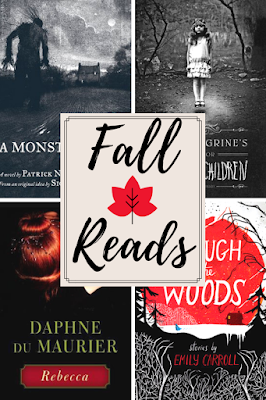Review of Neil Gaiman's version of The Ocean at the End of the Lane: it's nonstop action.
Best-selling fantasy novelist Neil Gaiman has released his first adult novel in nearly ten years with The Ocean at the End of the Lane. It's a deceptively straightforward story that, until you realize otherwise, feels like escape.
The story of Ocean is recounted from the perspective of a successful but depressed artist visiting his childhood home in Sussex, England. He goes to an old farm where he used to play on a whim and is suddenly overcome by flashbacks of being involved in a magical struggle that dates back to the Big Bang.
When he was seven years old, our anonymous protagonist spent his time playing with his new kitten, reading innumerable books, and learning songs by Gilbert and Sullivan. Even though he uses fictional worlds to escape the apathy of his family and classmates, he can't help but observe how difficult adult life is. His parents are in a financial bind, just like many others in the area. They must accept boarders in order to make ends meet.
One of those neighbors is a downtrodden gambler who accidentally kills the boy's kitten and then commits suicide long after in the family automobile. The town's collective, gnawing hunger for money appears to be fed by an ancient malevolence that is unleashed by these tragedies, with terrible effects, especially for our protagonist. They also introduce him to Lettie Hempstock, an 11-year-old (or perhaps a billion-year-old) girl who resides with her mother and grandmother on a former farm at the end of the aforementioned alley.
XEM THÊM :
Tải game chắn sân đình cùng nhau chơi quên lối về
The Hempstock farm is the focal point of everything cozy in the boy's existence, and Gaiman evokes both apprehensive horror and sensations of warmth and protection. Gaiman makes a suggestion that it could possibly be the safest place in the cosmos. Lettie and her family are good-hearted beings that live outside of time, in part to stop damage brought on by evil forces like the one the suicidal released.
The conflict between Lettie's family and this malevolent entity assumes a dreamy, darkly beautiful scale. However, every fantastical scenario is laced with the sorrows of everyday life, and as the magic intensifies, so does our understanding of how profoundly damaged this youngster and his family are in all too common ways.
The fact that this book is quite short in a genre famed for its doorstoppers (including Gaiman's own American Gods) works to its advantage because the plot is engaging and well-developed. Reading it is similar to delving into a very clever, ethically complex fairy tale. Fairy tales aren't for kids or adults; they're just stories, says Gaiman's adult protagonist at one point. The protagonist's adult and child viewpoints are flawlessly stitched together in Gaiman's retelling of the fairy tale, providing readers an understanding of how he perceived his past both at the time and throughout the remainder of his life.
The fact that we never fully comprehend Lettie's decision to defend our protagonist in The Ocean at the End of the Lane may be the book's only flaw. Does she have compassion for him? Is he particularly daring and imaginative? Or simply go through a phase where they form a relationship with a random person? Both the narrator and we are in the dark about this.
But despite being annoying, this mystery is also the driving force behind this book's bittersweet emotional impact. The main character, who is now in his middle age, must decide whether his straightforward, mortal life merited a supernatural confrontation. This concept, like every fantastical idea in Ocean, has a real-world analog. None of us truly understands whether the individuals we become as adults are deserving of the love and care shown to us when we were too little to reciprocate it. And we must age and pass away without ever learning the solution. This book never misses a beat as it seamlessly blends fast-paced action with reflective self-awareness.
Read Article:
You Should Try These 20 Legendary Filipino Snacks and Merienda in the Philippines
The Worst to Best of America's 25 Most Popular Snacks
Sydney Sweeney cut off the central part of her hair and gave it a lob haircut.




Comments
Post a Comment